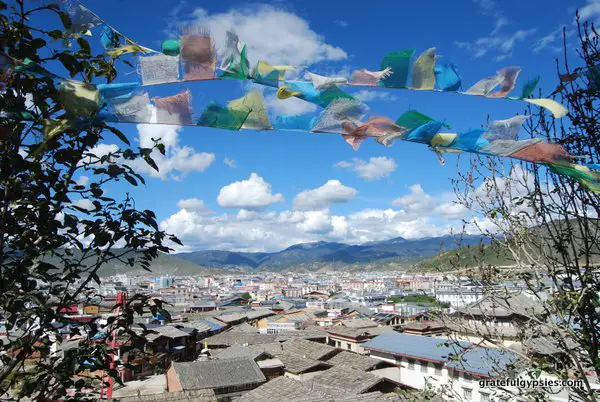Deciding to take an entire year off of school or work to travel extensively is no easy decision. Chances are you’ll have plenty of naysayers in your ear from the get-go:
“You need to finish up your degree!”
“How will you find a job after taking a year off?”
“It’s time to focus on your career!”

First and foremost, remind yourself that this is your life, you only have one, and it’s up to you how to live it. Your parents, friends, teachers, relatives, and colleagues can provide valuable advice, but in the end it’s your decision and yours alone what you want to do with your life. If you can ignore the peanut gallery and their calls for you to stick with the status quo, ask yourself a few questions to decide whether or not a gap year is for you:
Why am I taking a gap year?

What’s the purpose of your gap year? Is it simply to give yourself a break in between school and work? Is it to explore one certain part of the world you’re interested in? Is it to learn a language and experience a new culture? Is it to “find yourself”? People take gap years for various reasons, and deciding on yours will help you make a choice.
Where do I want to go, and how long do I want to stay?
A year is a long time – 12 months, 365 days, 8760 hours – so you need to think carefully about exactly where you want to go and how long you want to stay. Here are a few options to consider:
- RTW (Round-the-World): A lot of people taking a gap year decide to do a RTW trip. With a solid plan, it’s possible to book a RTW plane ticket that saves you a big chunk of change on air fare and allows you to cover lots of ground. You can certainly do a lot in one year, but just remember that you will have to cut tons of countries and places out simply for a lack of time.
- Focus on One Region: Whether it’s traveling across Europe by train, cruising on a motorbike through SE Asia, or making your way down to the bottom of South America, focusing on one region specifically allows you to travel mostly by land, see a lot more, and gain a better understanding of the countries and cultures you visit.
- Mix it Up: A lot of people decide to split their gap year across a few regions – the most common one being a trip across SE Asia followed by heading Down Under to Australia and New Zealand. People under 30 can also take into consideration getting a working holiday visa for Oz and NZ. We haven’t done this ourselves, but have met many people who have and have heard great things. Spend your money on the Banana Pancake trail, then earn it back before you head home.
While it’s great to be spontaneous and improvise, it’s a good idea to formulate a rough plan of where you want to go. This way, you can research visa policies, weather patterns, and other important aspects of the trip.
Am I ready for this?
Chances are your experiences with travel have been limited to family and school trips, short getaways, and maybe the occasional extended summer holiday. If traveling in your home country for two weeks tires you out, you need to seriously ask yourself whether or not you’re ready for an extended trip across foreign lands. If you’re the kind of person who prefers to have everything done for you (booking tickets, reserving rooms, getting around), a gap year is going to be either very difficult or very expensive. Moving around constantly and doing everything on your own – all the while adjusting to culture shock and language barriers – can be frustrating and exhausting. Look in the mirror and ask yourself if you’re ready for this kind of adventure. If the answer is no, then save your money for a cruise in the Bahamas or something. If you’re still considering it, then it’s time to figure out how to fund and execute this whole thing.
How am I going to pay for it? How much will I spend?
Unless you have a steady source of income (investments, freelance work, etc.) coming in, you’re going to have to fund this trip entirely before you leave. Of course, one of the hardest things about taking a gap year is saving for it. Based on our experience, we’d highly recommend teaching English in Asia for a few years to fund a gap year. We’ve got you covered for teaching in China, but also know from friends that Korea and Taiwan are great places to work and save. Before you start saving, think about how much it’s going to cost you. Check air fare, train tickets, and hostel prices in the places you want to go – these will be your biggest costs. Do some research into each place to get a rough idea of how much you’ll need to budget for food/drink, entrance tickets, visas, and so on.
If you’ve got all of those questions answered and you’re still with us, it’s time to start planning your gap year.
Our Decision

Pre-tirement (Noun): To take an extended leave from work in your 20s or 30s.
If you’ve never heard the word “pre-tirement” before, that’s probably because it doesn’t exist. Well, hopefully it will make its way into dictionaries eventually after we explain it here.
Most people think of “retirement” as playing golf, doing lots of reading, spending time with the grandkids, and all that good stuff that is supposed to come in your “golden years.” While that all sounds well and good, working for 40 years and waiting until we’re old and grey to really enjoy life just didn’t sound good enough for us. We wanted to get out and explore the world while we’re young, commitment free, and full of energy. With no house, car, kids, or credit card debt, we decided now was as good a time as any.

After an eye-opening trip on Bali island that was much too short for us to really soak the place up, we decided that we needed to travel full-time, without worrying about annual leave days, rent payments, or any of the other boring stuff that comes with a “normal” life. As such, we decided to make a conscious effort to save lots of money, do some intense planning, and go ahead and quit working to travel the world. We decided that this short and early version of retirement could best be described as “pre-tirement.” Most people refer to this kind of trip as a gap year – a year in between high school and college or graduation and starting a career. Seeing as how we took our “gap year” at the age of 28 in between living in two different Chinese cities, we felt that it needed a different name.
Just as moving to Beijing to live and work was a big decision for us a few years ago, it wasn’t easy to quit our stable jobs, leave our nice apartment, and give up our awesome social life in Beijing, but we knew it was the right one. After all, if there’s one thing we’ve learned in all of our travels, it’s that time constraints are a real drag. With so much time spent en route, getting over jet lag, and inevitably getting lost at some point, we decided that we needed to free ourselves from the shackles of only traveling for short periods of time around holidays. We want to dive into the places we visit, soak up the culture, learn as much as we can, meet people, and have new experiences at every turn. Just like the shows we love to see, we want our travels to be varied, unique, and improvised. The spirit of the music we loved combined with our love for travel has led us to this decision, and it can best be summed up in one of our slogans – “Life is a set-list; write your own.” If you’re ready to get serious, learn how to plan, save, and budget for a gap year. Then read all about our gap year, which took us from coast-to-coast in the US, across SE Asia, and from Hong Kong to our new home of Kunming back in China.
